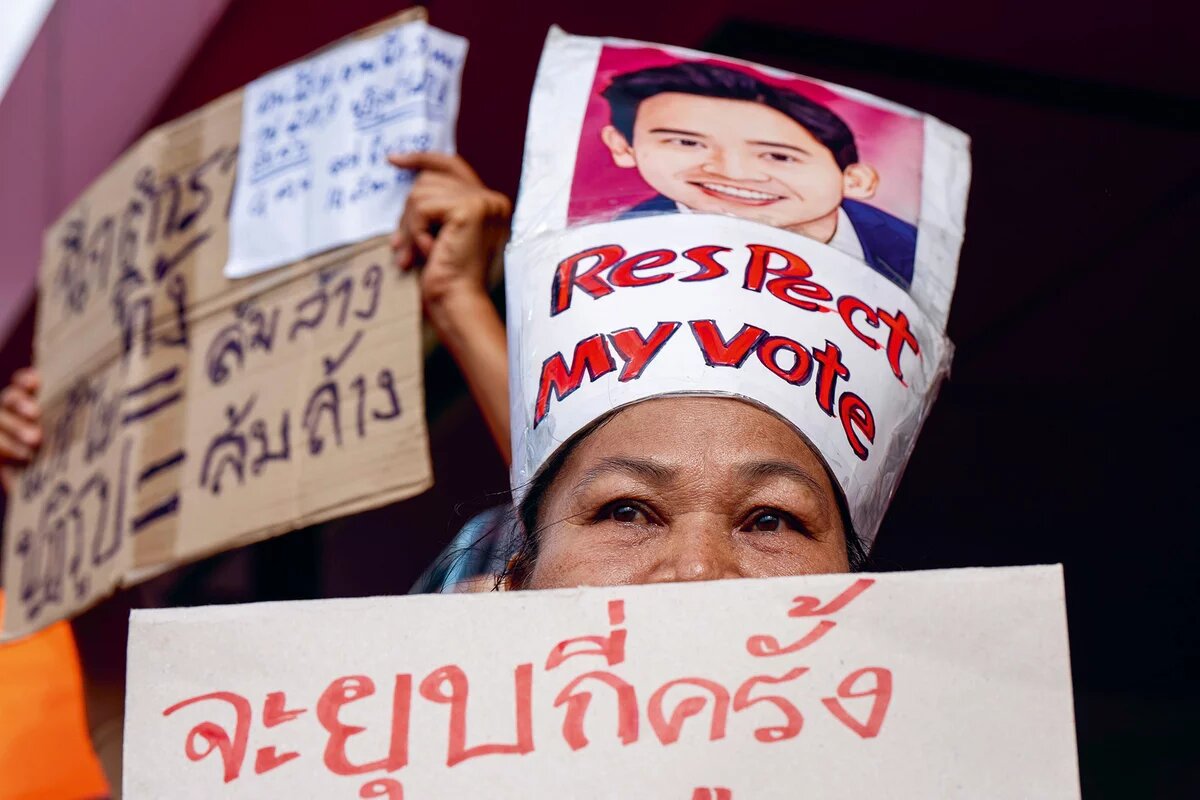What is the state of democracy? This question is on our minds in this year of major global elections, whether it be at home in Saxony, Thuringia, and Brandenburg, or internationally in the USA, India, or Senegal. And even in countries where no major elections are scheduled this year, we are keenly monitoring the state of rule of law, civil liberties, and opportunities for individuals to be heard and participate in political decision-making ‒ either with hope or concern. Diverse societies must negotiate diverging, sometimes even conflicting needs and interests. The only sustainable and peaceful way to achieve this is participation and involvement, especially regarding the central issues of our time: peace and security, prosperity and fair distribution of wealth, as well as the socio-ecological transformation, all of which must be driven both at the individual and the collective level. As Imme Scholz, President of the Heinrich-Böll-Stiftung, writes in her editorial, «Without democracy, everything is for naught».
Democracies worldwide have been facing significant challenges in recent years. Citizens of autocracies who advocate for human rights and reform are under constant threat of repression and violence. Their scope for action continues to shrink.
In the wake of the Cold War and the collapse of the Soviet Union, a series of successes for democracy fueled a spirit of optimism in the 1990s and early 2000s. During the past two decades, this optimism has given way to resignation, or at least to a sense of uncertainty. Studies by the Varieties of Democracy Institute show a shift in indicators for rule of law and individual freedoms, such as the right to assembly or free expression. Images of imprisoned regime critics and of violence against peaceful protesters are ubiquitous.
Fighting for the rule of law, free expression, and political participation
These images, however, also demonstrate people’s willingness to fight for political participation and their rights, despite ‒ or perhaps precisely because of ‒ repression. We see lawyers and judges upholding the rule of law; journalists and podcasters exercising their freedom of expression; activists, party members, and ministers practicing political participation. They work under widely varying conditions ‒ from an open political culture with readily available resources and built-in opportunities for participation, all the way to persecution, violence, and surveillance. Many accept the risk of losing their freedom or even life and limb. They willingly subordinate their personal fate to a greater collective cause. Their actions prove that they still have hope for a better and fairer future. Images of people engaged in peaceful protest on the streets of Hong Kong, Minsk, or Yangon, all while facing down state security forces, are a powerful testimony to this persistence. While there are many ways to advocate for political participation and human rights, peaceful protest has always played a special role in the recent history of democracy, initiating and consolidating further developments. This issue tells the stories of individuals and organizations and their various ways to engage or stand in solidarity with democratic movements in their home countries. What drives these people? How do they engage? What challenges do they face? In conclusion, we will also address what political forces can do to empower these people.
A protest movement might evolve into a new political party. But things can also go quite differently, depending on the actors’ circumstances, motivation, and opportunities. In our interview, Chilean Antonia Orellana recounts how her environment has shaped her political views since she was a child. From a young age, her family took her to protests. Later, as a student representative, she advocated for her fellow students. After a career as a feminist activist, incoming President Gabriel Boric appointed her Minister for Women and Gender Equality. Dzmitry Shershan and Ina Valitskaya had a completely different experience protesting against the Lukashenko regime in Belarus. They were forced to flee their home country and are now politically active in German exile as members of the Razam association, which keeps the dream of a democratic Belarus alive. Hosni el Mokhlis was briefly engaged in party politics after the pro-democracy protests in Morocco in 2011, but soon felt the urge to leverage his skills as a playwright. Today, he creates new spaces for social debate with his «Theater of the Oppressed».
Promoting social cohesion and making it a real-life experience
Civic engagement can also mean helping other people expand their opportunities and encouraging them to advocate for their rights and those of others. The initiative iLaw, founded in Thailand in 2009, empowers people to effectively engage with democratic reform processes, in particular in the digital space. Our report highlights their successes. Even soundscapes can offer a safe space to collectively stand up for democracy in public. The Banda Communale has been attending protests for more than 20 years, using music as a vehicle to foster social cohesion and make it a real-life experience.
Just as the forms and spaces of engagement change over time, political goals and visions also evolve via discussion and confrontation. Antonia Orellana remembers that the relationship between leftist political activism and feminism in Chile was not always an easy one, which motivated her to found her own, more inclusive party. In his essay, Jovan Džoli Ulićević, director of the Transbalkan organization, wonders why many pro-democracy movements in the Balkans are still reluctant to stand in solidarity with queer movements, while anti-democratic forces do not hesitate to associate and vilify both movements. And, lastly, as an observer and commentator on EU politics, Rosa Balfour analyzes the rise of far-right parties, challenging us to explore why established parties seem to have lost the trust of many.
Solidary with democratic actors requires targeted efforts. Our six portraits are examples of the many possible pathways from one form of commitment to another, for instance, from activism to institutionalized politics. The column features personalities who have sought and found their way into and out of politics. Their stories show that there are many ways to support democracy, depending on personal experiences, motivations, and resources. Yet they all share one common trait - the courage to continually question one’s own assumptions. Democracy draws its strength from openness to change and the ability to correct its course whenever necessary.
The key is to always be alert, listen, and ask questions.
Strengthening democracy worldwide is also a fundamental principle of democratic foreign policy. Its stakeholders, whether they act on behalf of civil society, philanthropy, or governments, must engage with different perspectives. They must align their goals with their tools and resources and be able to learn from setbacks. Indian social scientist Neha Dahab illustrates that even democratic fundamental principles such as secularism can be interpreted in a variety of ways. In order to communicate and learn from each other, all parties must be willing to translate the others’ norms and experiences. Sergio Rodriguez Prieto discusses how the toolkit of foreign policy can be adapted to serve peaceful, pro-democratic protest movements. Green-party MP Schahina Gambir analyzes the political lessons Germany must learn from its engagement in Afghanistan in order to maintain its credibility as an advocate of democracy and human rights worldwide. Her contribution shows that every location and every situation continuously challenges both actors and supporters to listen, look, and ask questions. Democracy thrives on constant adaptation. It’s what makes it resilient.
Empowering people to advocate for political participation and individual freedoms is a global task. European democracies can learn from other countries’ experiences, since they often face similar problems, such as disinformation. Elene Panchulidze joins Rosa Balfour in describing the challenges to the democratic makeup of the European Union, both in terms of its internal decision-making processes and guarding against external influences. In Saxony, pro-democratic forces explore ways to encourage and motivate people to stand up against right-wing extremism. Banda Comunale has found that loud music is a great motivator.
The final contribution in this issue comes from Afghanistan. It makes a passionate plea not to abandon the country’s democratic-minded citizens, but instead continue international engagement for democracy and human rights, even in the face of dire adversity (p. 44).
Rasmus Randig is Head of Program for International Democracy and Deputy Head of Unit for Global Support for Democracy and Human Rights at the Heinrich-Böll-Stiftung in Brussels. He studied Economic and Social History in Glasgow and Constance and worked in Crisis Prevention and Stabilization at the German Foreign Office.

